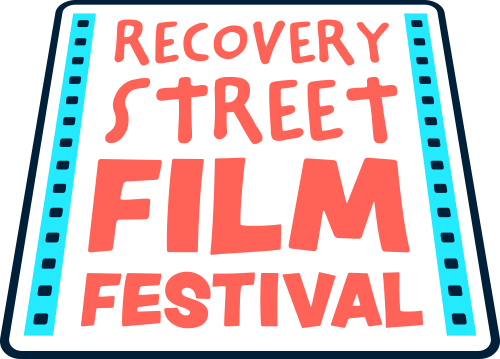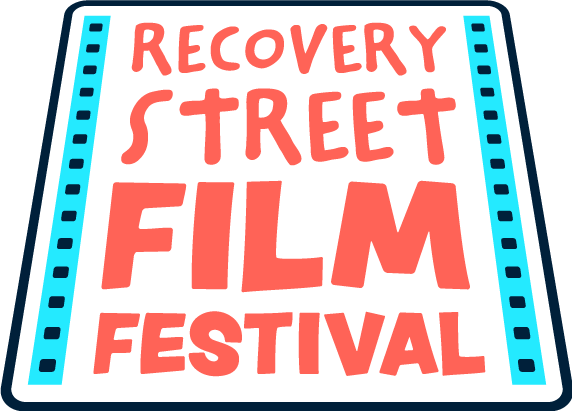A chat with Recovery Street Film Festival 2022 filmmaker, John Paul Chapman
John Paul Chapman, or JP for short, entered Recovery Street Film Festival 2022 on a whim with his mates at Chase Recovery. Their film ‘My Head Feels Like a Washing Machine’ was shortlisted and eventually placed third overall in the annual film competition.
We sat down with JP to chat about what the experience meant to him, how the creative process has led to more projects, and why other people should get involved.
“Music and film making are a huge part of my recovery now... I thought I’d lost it forever.”
RSFF: Hi JP, thanks for chatting with us. Are you able to give us a quick summary of your Recovery Street Film Festival competition entry?
JP: I’d just got out of treatment. I returned to Chase Recovery and met with Cara. She works for Chase Recovery. She had an e-mail from you guys and said, “Do we want to enter a film?”
I didn't really give it much thought, but I was I was into music production before my addiction took hold of me and I'd made a few music videos, so I thought, why not?
On an old, knackered laptop, I put a track together. It was a bit of fun and quite humorous and we filmed a video for it within Chase Recovery using a mobile phone. I went away and I started putting that film together. It took quite a long time on the laptop I was using. It was like trying to clean a statue with a toothbrush! It was long, but I was pleased with the result, and we entered it.
Then we received an email inviting us to London for the screening and awards. That shocked us all considering we just sort of entered it and there wasn't much planning.
But that's how we came across the festival, and it got everybody involved. The creativity hasn’t stopped since then.
RSFF: What was the idea behind the story of your film?
JP: Well, we all sat down together, about six of us, and said, “Right, we need to come up with the film.” And there's one guy who was always saying his head feels like a washing machine.
And we said, right, that’s an idea: my head feels like a washing machine. So, we came up with a chorus. Something like, “Feel so dirty, I want to be clean, but my head feels like a washing machine.” I kept saying that over and over in my head, and before I knew it, I was writing verses around it.
So the song was there, and then we thought, “I tell you what, we'll start with t-shirts.” We wrote things on the t-shirts like ‘lonely’, ‘lost’, and ‘feel like sh*t’. Then we put the t-shirts and some funny masks on and filmed outside of a laundrette.
Then we filmed inside the laundrette. Paul – the one who said his head feels like a washing machine – put the t-shirts into a washing machine with some Chase Recovery washing powder. We get clean and our t-shirts are better, so at the end everyone's dancing around in the garden being happy.
RSFF: Could you give us some insight into the more technical side process of your filmmaking process?
JP: I've used Cubase a lot in the past, a music production platform. And I started working with that. Because of the state of my laptop, I couldn't really connect a proper keyboard to it. I had to draw the MIDI notes on a screen. And it worked.
We did more recording on some other equipment one of our guys had. I couldn't record straight into the laptop, but we could record it onto something else. Then I had to transfer it onto the laptop and try and make the vocals sound how we wanted them to. I was really pleased with it.
Then, with the video, everybody got together. We picked a nice day. It was afterwards that the work mainly started – putting it together and stuff.
RSFF: How did you find that editing process?
JP: I really enjoyed it. I'd forgotten how much I liked it in the past. In the past, it was always done with a drink or a drug inside me. I wouldn't have the confidence to do something like that unless I had a drink or drug inside me. Then I would hit writer’s block and think the only way to overcome that was to take more and more drugs.
But in the space of the year since we've done it, things have worked out incredibly. It’s indescribable really, mate. I can't believe how much things are pushing forwards just speaking to you about this. It’s the little things. It’s beautiful. We started a creative hub on the back of it, but we can speak about that in a bit if you like.
Music and film making are a huge part of my recovery now. A massive part. And I thought I'd lost it forever. I couldn't remember things I wrote myself 5-6 years ago.
But it shows it can be done. It shows it is possible no matter how hard down the scale you've gone, you know.
RSFF: What would you say was the most rewarding part of making your film?
JP: The most rewarding part of making the film was bringing everybody together as The Detox Factor and getting that that creative flare.
After finishing the film, I thought, is that it? So we formed a group called The Detox Factor. We took the X from… well, I probably can’t mention that because it could be copyright!
But our primary purpose is to inspire people still suffering from addiction. And you know what? It's happened. I didn't realise so many people have the same passion for music.
When I mention The Detox Factor at meetings, people will come back to me straight after saying “Oh, I haven't played guitar for five years.” It's just beautiful and it's continuing. It’s all about the five ways to wellbeing.
We've now got some better equipment, but it’s not about the equipment. It's about people getting together, having fun, and doing what they love.
RSFF: Were there any particularly challenging aspects of making the film?
JP: There was a bit of fear about getting up on that stage in London and getting the award! The other frustrating part was the equipment we had at the time. Yeah, the equipment was challenging sometimes. But that's about it.
RSFF: Did you learn anything new when you created your film?
JP: I think foremost I learned that my creativity hadn't died like I thought it had. In fact, it's better now than ever. Things come quicker without the need to put anything inside me.
I didn't think it was possible. The way we're still connected, still making films, still making music. We're getting new people hear about it who come into our service and they’re as excited we were when we first made the group. It's becoming autonomous, which is great. More people are getting involved. We say it’s like a fellowship. No one's a boss, and we have a group conscience if any decisions are to be made.
We do it like Recovery Street Film Festival does it. We do it to show society it’s wrong to think we've got no inspirational creativity. It just smashes that stigma to bits.
RSFF: What legacy do you want your film to have?
With The Detox Factor, our primary purpose is to inspire people that are still suffering to know that…
I was in a bad way, mate. It does make me emotional to think about it. And now I can see how far I've come in such a short space of time. I just want people to know that it is possible no matter how far down the scale they’ve gone. To know not to give up; not to give up hope.
RSFF: Have you been inspired to work on any other projects since entering the festival?
JP: Yeah, we’ve been carrying on making films with our recovery group. At Christmas, we did an alternative version of ‘A Christmas Carol’. We make loads of little films.
Personally, I've carried on making my music. I did a music video last week with my sponsor in a church. I'll send it you over afterwards!
My personal muse is the music. That's the basis of my recovery now and I’m hoping that I can pass the message on. And we've been waiting for this next Recovery Street Film Festival!
It's beautiful, mate. It's part of my life and it's part of my recovery.
RSFF: What tips would you give to someone who has decided to submit a film to Recovery Street Film Festival 2023 but hasn't made one before?
JP: Don't give up on working with other people. The more people you involve, the more ideas you get. Something can be built out of many ideas rather than just one. And keep learning.
RSFF: If someone was thinking about submitting a film, but didn’t feel confident enough to enter, what would you say to them?
JP: Confidence is a big thing. But they are good enough. They shouldn't think they're not good enough. I used to think I wasn't good enough, but just to do it.
It can feel hard to get over, but just try to push past that fear. What's the worst that can happen? The worst that can happen is that you don't get through, but you might be inspired to carry on doing it anyway.
Find out more about entering the Recovery Street Film Festival 2023 on our competition page.

